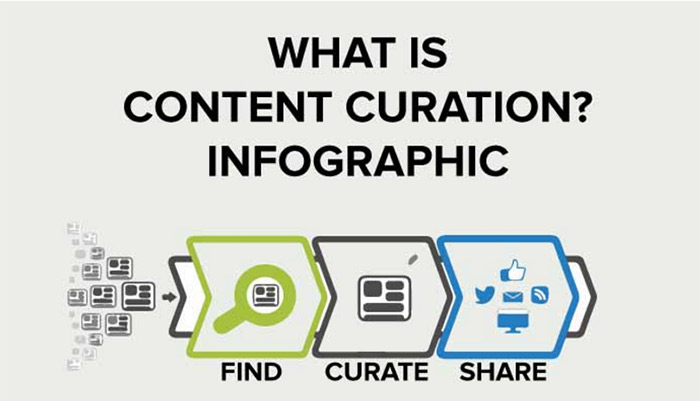Contents
In today’s digital age, the Software as a Service (SaaS) market is growing, with organizations of all kinds using cloud-based software solutions to run their operations.
However, this rapidly increasing sector is also very competitive. Therefore, SaaS firms must execute efficient marketing tactics to promote growth and optimize return on investment (ROI).
Traditional marketing techniques frequently fall short in this changing field, necessitating novel, data-driven tactics customized to the SaaS industry’s particular problems and potential.
This thorough blog reveals 10 tried-and-true hacks that industry leaders have effectively utilized to boost their SaaS marketing efforts and maximize ROI.
10 Major Hacks to Boost SaaS ROI

Deep Customer Research
Understanding your clients is the key to success in the SaaS sector. According to a Forrester survey, organizations focusing on customer experience earn 5.7 times more revenue than competitors.
By thoroughly reexamining your customer profiles and utilizing SaaS data, you can fine-tune your targeting, improve product-market fit, and optimize acquisition and retention methods for maximum effect.
Customer feedback surveys, user activity analytics, and social media monitoring may help you understand your consumers’ requirements, preferences, and problem areas.
Leverage Content Marketing
Content marketing has become an essential component of an effective SaaS marketing strategy. The Content Marketing Institute reported that content marketing produces three times more leads than traditional marketing strategies.
Implementing lead scoring helps you to prioritize high-intent prospects, which streamlines the decision-making process efficiently. Furthermore, interactive AMP emails may greatly increase conversions by offering a smooth and engaging user experience right in the inbox.
Create meaningful, insightful content that answers your customers’ concerns and demonstrates your expertise to develop thought leadership, build trust, and nurture leads through the sales funnel.
Foster Strategic Partnerships
Strategic alliances with non-competing enterprises may transform SaaS organizations. According to Influitive, co-marketing collaborations may boost income by up to 32%. Collaboration with comparable firms allows you to broaden your reach and reach new client segments.
These joint initiatives can produce reciprocal benefits, including cross-promotion, co-branded content, and packaged offers, resulting in significant development for all parties involved.
Optimize Product Experience
Offering an engaging free trial experience can be an effective way to attract and convert prospects. According to a Totango survey, SaaS firms with a free trial conversion rate of more than 25% see much faster revenue growth.
By matching trial lengths with the time it takes for prospects to discover the full value of your solution, you can boost user engagement and, eventually, conversions. Additionally, offering excellent onboarding and assistance throughout the trial time may improve the user experience and boost the probability of conversion.
Build a Content Moat
In the SaaS market, having a strong online presence and winning informative searches in your field is critical for increasing organic traffic and creating brand authority. According to a BrightEdge survey, 51% of B2B marketers rely primarily on organic search for website traffic.
By developing a thorough content strategy that includes user-generated material, comparison pieces, and helpful guides, you can create a “content moat” that boosts your brand’s trust and helps prospects through the buying process.
Leverage Case Studies
Case studies are effective tools for demonstrating the real-world impact of your product and creating trust in potential buyers. According to Demand Gen Report’s report, 79% of B2B buyers utilize case studies to explore solutions.
By creating conversion-driven case studies with social proof and detail, you can successfully illustrate the value of your product and help prospects make decisions.
Host Pain Point Webinars
Hosting webinars that address your client’s pain points and give actionable insights may be an excellent approach to generating high-quality leads and building connections. According to ReadyTalk research, 61% of marketers say webinars’ primary purpose is generating leads.
By concentrating on relevant issues to your target audience and providing value-packed material, you can establish your brand as a trusted expert and increase interaction with potential consumers.
Implement Referral Programs
Referral marketing is a very effective method for SaaS organizations since it makes use of word-of-mouth referrals from existing customers. Extole’s study found that recommended customers have a 16% greater lifetime value than non-referred consumers.
Implementing a well-designed referral program that incentivizes users to promote your product with their network allows you to drive new user acquisition at a cheaper cost while benefiting from the confidence and credibility that personal recommendations provide.
Explore Growth Hacking Opportunities
Growth hacking is a philosophy that seeks to uncover and capitalize on unique growth possibilities through creative, data-driven experimentation. According to a Zymplify analysis, growth hacking may boost user acquisition by up to 50%.
By experimenting with integration partnerships, micro-communities, and viral aspects, you can tap into new channels and generate quick growth for your SaaS business.
Leverage Retargeting
Retargeting is an effective approach for re-engaging prospects who did not convert and guiding them along the sales funnel. Criteo found that retargeted advertising may raise conversion rates by up to 147%.
Strategic retargeting across many channels, such as social media, display advertisements, and email, allows you to stay in front of potential consumers and optimize conversions.

Conclusion
The SaaS industry always evolves, so staying ahead of the competition requires a strategic and data-driven marketing approach.
Implementing the ten proven hacks in this article will enable you to effectively reach and engage your target audience, drive growth, and optimize ROI for your SaaS business.
Remember that success stems from thoroughly understanding your customers, creating exceptional content experiences, using partnerships, refining your product funnel, and exploring new growth channels.
To stay competitive in the ever-changing SaaS industry, regularly assess and refine your methods based on performance data and develop a continuous improvement mindset. Additionally, leveraging the expertise of Saffron Edge can be immensely beneficial, with proven ROI percentage increases achieved for clients.
Get The SaaS Marketing Toolkit
Related Blogs
We explore and publish the latest & most underrated content before it becomes a trend.

Subscribe to Saffron Edge Newsletter!

Get The SaaS Marketing Toolkit










